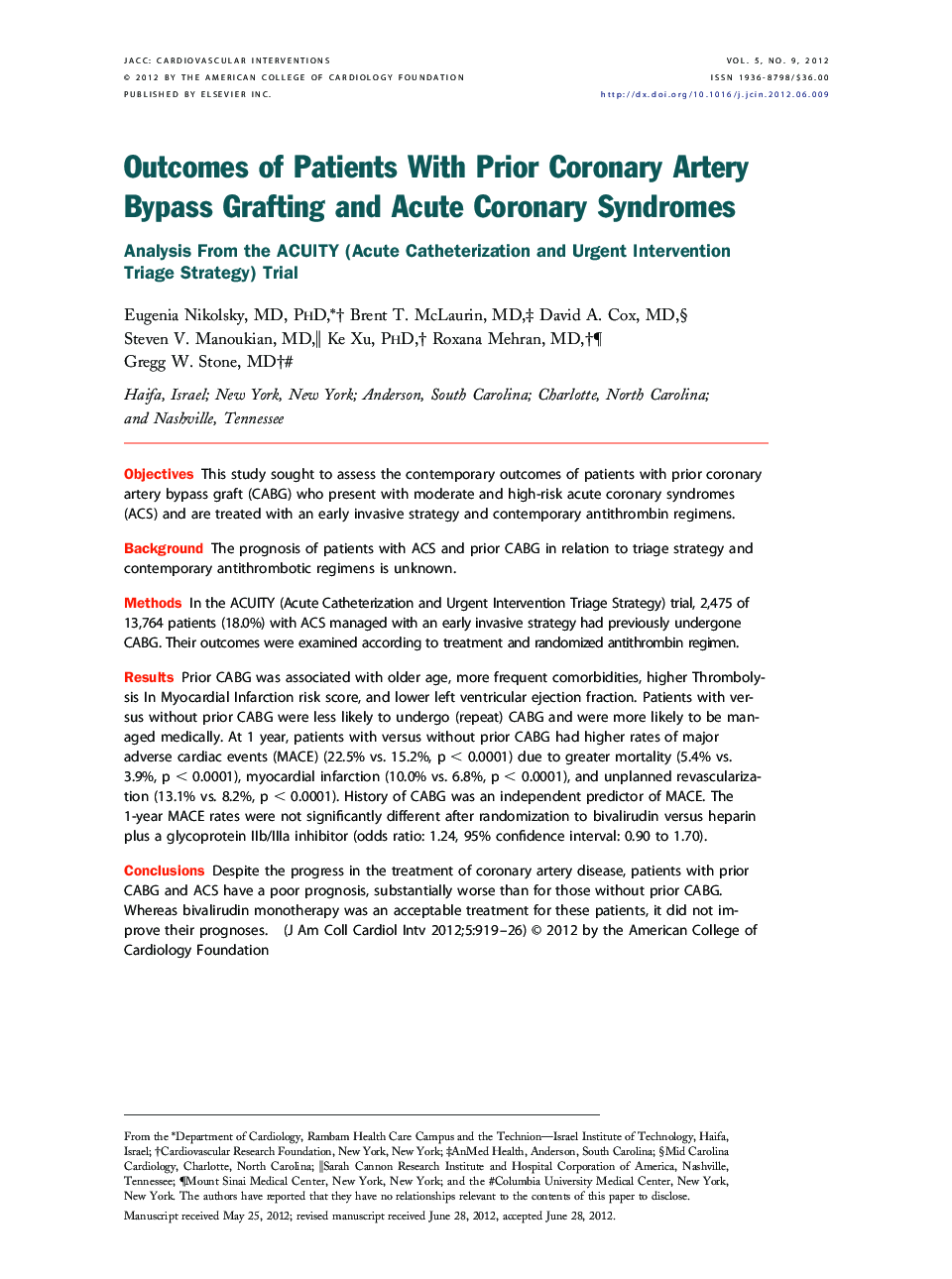| کد مقاله | کد نشریه | سال انتشار | مقاله انگلیسی | نسخه تمام متن |
|---|---|---|---|---|
| 2940811 | 1177045 | 2012 | 8 صفحه PDF | دانلود رایگان |

ObjectivesThis study sought to assess the contemporary outcomes of patients with prior coronary artery bypass graft (CABG) who present with moderate and high-risk acute coronary syndromes (ACS) and are treated with an early invasive strategy and contemporary antithrombin regimens.BackgroundThe prognosis of patients with ACS and prior CABG in relation to triage strategy and contemporary antithrombotic regimens is unknown.MethodsIn the ACUITY (Acute Catheterization and Urgent Intervention Triage Strategy) trial, 2,475 of 13,764 patients (18.0%) with ACS managed with an early invasive strategy had previously undergone CABG. Their outcomes were examined according to treatment and randomized antithrombin regimen.ResultsPrior CABG was associated with older age, more frequent comorbidities, higher Thrombolysis In Myocardial Infarction risk score, and lower left ventricular ejection fraction. Patients with versus without prior CABG were less likely to undergo (repeat) CABG and were more likely to be managed medically. At 1 year, patients with versus without prior CABG had higher rates of major adverse cardiac events (MACE) (22.5% vs. 15.2%, p < 0.0001) due to greater mortality (5.4% vs. 3.9%, p < 0.0001), myocardial infarction (10.0% vs. 6.8%, p < 0.0001), and unplanned revascularization (13.1% vs. 8.2%, p < 0.0001). History of CABG was an independent predictor of MACE. The 1-year MACE rates were not significantly different after randomization to bivalirudin versus heparin plus a glycoprotein IIb/IIIa inhibitor (odds ratio: 1.24, 95% confidence interval: 0.90 to 1.70).ConclusionsDespite the progress in the treatment of coronary artery disease, patients with prior CABG and ACS have a poor prognosis, substantially worse than for those without prior CABG. Whereas bivalirudin monotherapy was an acceptable treatment for these patients, it did not improve their prognoses.
Journal: JACC: Cardiovascular Interventions - Volume 5, Issue 9, September 2012, Pages 919–926